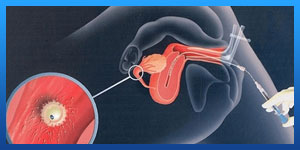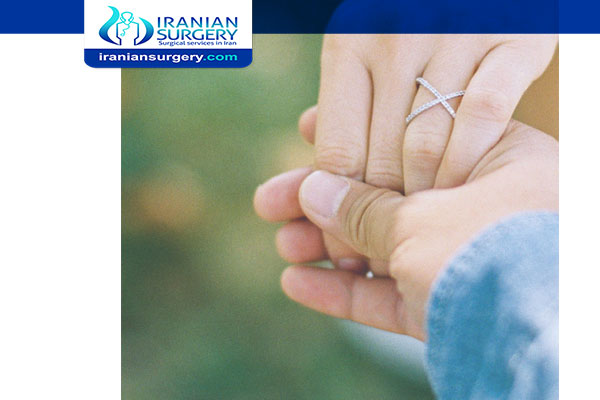2nd IuI Success Rate
What are the chances of getting pregnant with IUI?
IUI treatment success rate depends on many factors, including the cause of infertility and the quality of sperm and eggs, and age. Also, keep in mind that the success rate of a cycle of IUI is often low, which makes it necessary for most couples to repeat the treatment.
Read more about : What are the Biggest Differences between IUI and IVF?
A study of about 1000 IUC cycles has shown that the success rates of intrauterine insemination for couples with different infertility problems who had more than one cycle of IUI were as follows:
. 55.6 percent for cervical problems
. 47.4 percent for ovulation problems (anovulation)
. 41.7 percent for male factor infertility
. 37.6 percent for low sperm count (oligospermia) (less than 20 million sperm per ml)
. 35.1 percent for unexplained infertility
. 13.4 percent for poor sperm motility (asthenospermia)
. 10.7 percent for endometriosis
 Read more about : PGD in Iran
Read more about : PGD in Iran
Read more about : IVF in Iran
________________________________________________________________________________________________________________________
Infertility Treatment with Iranian Surgery Specialists
Iranian Surgery doctors have helped thousands of people begin or expand their families over the years. Your compassionate team of experts can evaluate the cause of your infertility, and help you find a treatment plan that's the right fit for you.
Iranian Surgery specialists in obstetrics and gynecology are leaders in infertility treatments, and will work with you to conceive via medication, surgery, in vitro fertilization (IVF) or another method.
Iranian Surgery doctors have extensive experience in diagnosing and treating infertility in couples. Each year, our experts see nearly 400 men and women with infertility issues.
Advanced diagnosis and treatment
Our team is a leader in advanced infertility treatments, including oocyte preservation, fertility preservation, and treatment of uterine fibroids and endometriosis. So, you can freeze oocytes to create an appropriate number of embryos. The Iranian Surgery team is constantly assessing the latest evidence in fertility treatments to give you the best options while minimizing delays and unnecessary tests.

_________________________________________________________________________________________

Dr. Maryam Khosromehr
- Dr. Maryam Khosro Mehr is a gynecologist and infertility specialist and has a specialized board. Dr. Khosro Mehr is present in the obstetrics and gynecology department of Pars, Pasteurno and Sarem hospitals.
Educational background:
General Practitioner. Shahid Beheshti University of Medical Sciences
Specialist in General Surgery . Shahid Beheshti University of Medical Sciences
Advanced Laparoscopic Fellowship. Iran University of Medical Sciences
TQM (Total Quality Management) course.

Dr. Zolghadri
Dr. Jaleh Zolghadri is a specialist reproductive medicine and Infertility, IVF and recurrent pregnancy loss since 1992
- Professional Work Experience
1- Specialist Reproductive Medicine and Infertility, IVF and recurrent pregnancy loss since 1992
2- Reproductive Surgery (laparoscopic and Hysteroscopic procedures)
3- Full Professor of OB/GYN, Consultant, Shiraz University of Medical Sciences since 1990.4- Working and supervising infertility fellowship residents in ART & Infertility ward (1991 -2020)
5- Head of the Recurrent Abortion clinic, Shiraz University of Medical Sciences (since 1998)
6- performing many infertility techniques like Microinjection ,Zift, Egg and Embryo donation, Surrogate uterus ,Sex selection, and PGD/PGS
7-Infertility Consultant in Avicenna center of Infertility and recurrent miscarriage
8- Preforming many female Cosmetic surgery like Labioplasty, vaginal rejuvination, tightening and whitening by Monaliza Laser and labia filler injection,PRP and other Aesthetic procedures.
- Membership in major
- professional societies
1- Member of American Society for Reproduction Medicine (ASRM)
2- Member of American Association of Gynecologic Laparoscopists (AAGL)
3- Member of Middle East Fertility Society (MEFS)
4- Member of Iranian Society for Reproduction Medicine (ISRM)
5- Member of Iranian Society of Surgeon
6- member of American Aesthetic Surgery Society
________________________________________________________________________________________________________________________

Your chances of success with IUI
This depends on lots of different things, including:
. The cause of infertility
. The woman's age
. The man's sperm count and sperm quality (using fresh sperm leads to higher conception rates than using frozen sperm)
. Whether or not fertility medicines are used to stimulate ovulation (this can increase your chances of success)
There are many different factors involved, so it's best to talk to your fertility team about your individual chances of success.
Read more about : How many days after period is frozen embryo transfer?
Read more about : Icsi procedure step by step
How successful is one cycle of IUI?
As with any fertility treatment, the younger the woman is the higher her chances of getting pregnant. You’re also more likely to get pregnant if you have fertility drugs to stimulate your natural cycle.
For women aged under 35, about 18% of IUI cycles result in a healthy baby being born (a cycle is one full round of IUI treatment). Women aged 35 to 37 have a 14% success rate and the birth rate for women aged 38-39 is 12%. For women over 40, your chances are lower (5% for women aged 40 to 42 and 1% for women aged over 42). These are 2017 statistics taken from our latest Fertility trends report.
Many women will have several cycles of IUI before they have a successful pregnancy so it’s worth considering that when you’re thinking about costs of treatment.
Read more about : What is the success rate of ICSI IVF
Read more about : What is the lowest sperm count for IVF
Read more about : IUI vs IVF success rates over 40
Read more about :Which is more painful iui or ivf?
Read more about : IVF with donor eggs process
How can I increase the chances of successful IUI?
These tips can help boost the potential for successful treatment.
. Avoid Excessive Stress and Anxiety.
. Avoid Ejaculation for Three Days.
. Ask About Possible Hormone Stimulation.
. Ask About Sperm Washing.
. Eat Healthy.
. Exercise Regularly.
. When to Reconsider IUI after Repeated Failure.
Read more about : IUI and IVF side effects
Read more about : ivf process start to finish
What are the risks and complications of IUI?
There is a small risk of infection following the IUI procedure. Your doctor will use sterile instruments, so infection is very rare.
If medications are used to induce ovulation, there is a risk of pregnancy with multiple babies. Since fertility medications increase the likelihood that more than one egg will be released, they also increase the likelihood of pregnancy with multiples. Your physician will try to balance the amount and type of medication, along with bloodwork and ultrasound monitoring, to prevent too many eggs from being released at one time.
Sometimes the ovaries over-respond to fertility medications (particularly the medications given as injections) and a condition called ovarian hyperstimulation syndrome may result. A large number of eggs may be matured at one time and possibly released. This can result in an enlarged ovary, fluid buildup in the abdomen, and cramping. In very rare cases, ovarian hyperstimulation syndrome can result in fluid buildup in the chest and abdomen, kidney problems, blood clots, and twisting of the ovary.
If you’re currently taking fertility medications for IUI and experience any of the following symptoms, you should call your doctor immediately.
. Dizziness or lightheadedness
. Sudden weight gain of more than 5 pounds
. Shortness of breath
. Nausea and vomiting
. Severe abdominal or pelvic pain
. Sudden increase in abdominal size


